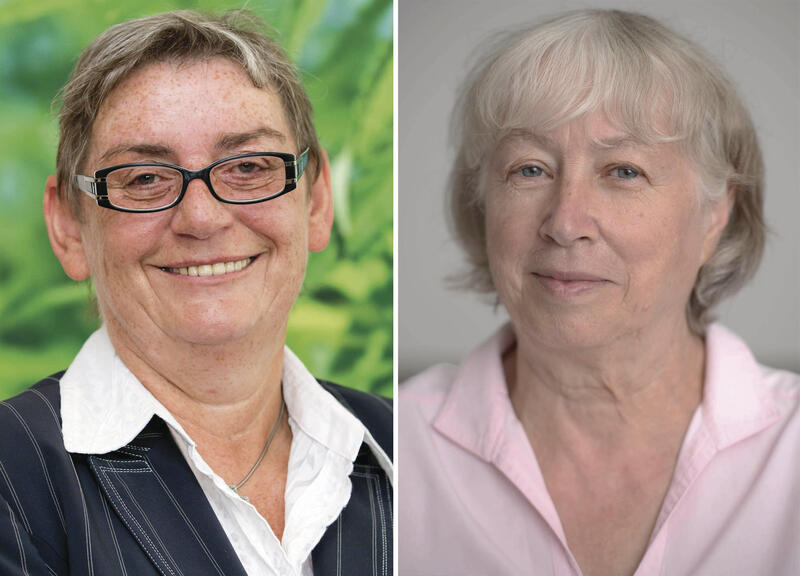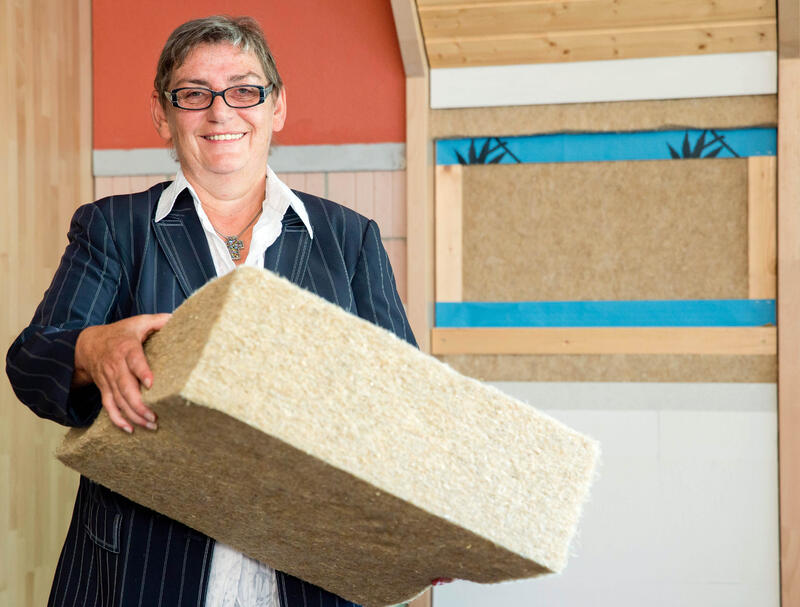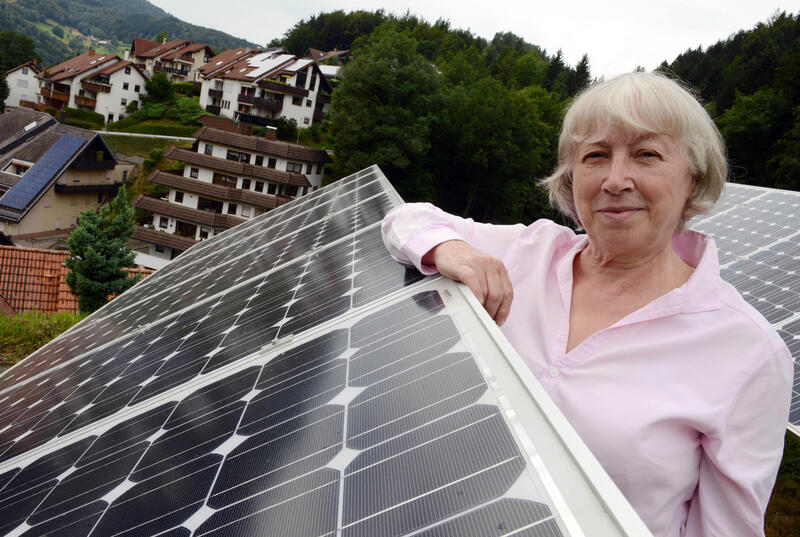Women power for environmental protection: “Turned visions into reality even in the face of massive resistance”
Osnabrück. The winners of the German Environmental Award of the Deutsche Bundesstiftung Umweltstiftung (DBU) have been selected. The 500,000-euro award, the most lucrative environmental prize in Europe, is to be shared in 2013 by the founder and managing director of the company Hock (Nördlingen), Carmen Hock-Heyl (58), and the chairwoman of the board of Netzkauf ElektrizitätsWerke Schönau (EWS) e.G., Ursula Sladek (67). Hock-Heyl is receiving the award because she established insulation batts for house building made out of the eco-friendly raw material hemp on the market, and the “electricity rebel” Sladek is being honoured for creating the first green-energy provider in Germany on the basis of a civic action group. “At a time when they were only condescendingly smiled at,” the women “displayed persuasive power, competence and persistence in the face of massive resistance to carry out pioneering work at the interface of ecology and economy and turn their visions into reality,” said DBU General Secretary Dr. Fritz Brickwedde today. The prizes will be presented by German President Joachim Gauck in Osnabrück on October 27.
Hock-Heyl established insulation batts made of the sustainable raw material hemp on the market
With stubborn commitment, business acumen and the courage to take risks, Carmen Hock-Heyl succeeded in establishing insulation batts for house building made of the sustainable raw material hemp on the market, Brickwedde said. “This product inventor, company founder and managing director has not just made eco-friendly insulation materials more accepted. She is also a model for other business, because she has successfully reconciled ecological and economic considerations, made it possible to build in a healthy way, and revived regional economic cycles,” he said.

© DBU/Daniel Karmann; Patrick Seeger
A long and laborious path in the face of resistance and lack of interest
But, he said, Hock-Heyl had to go down a long and laborious path in the face of much resistance before these thermo-hemp products went on the market. He described how she had completely revamped the entire process – from sowing the hemp and producing the insulation batts, to recycling – invested a lot of money and done a lot of persuading. She had promoted sustainable, resource-saving insulation materials at a political level and in associations. Since 2003, Brickwedde said, the company has been producing the batts itself, and in 2005, it moved – with its now around 70 workers – to Nördlingen in Bavaria. “Thermo-Hemp” products have been on the European market since 2006, he added, noting that the company Hock was now even a market leader for natural insulation materials made of hemp with its product “Thermo-Hemp Premium”.
“Hardheadedly made hemp handy for the house”
Brickwedde went on to say that the new product sold by the company, “Thermo-Hemp Plus”, was fully biodegradable and could be returned to the company free of charge if a house were torn down. He also noted that instead of flame-retardant chemicals that are toxic in case of fire, Hock used naturally occurring alternatives for all products. He commended the many advantages of thermo-hemp for builders and consumers, saying it was light, produced little dust and non-irritant, as well as guaranteeing a healthy and pleasant climate inside the building. Brickwedde: “It was always Carmen Hock-Heyl's aim to do something for the sustainable protection of the climate and to continue to establish building with products made from renewable raw materials – such as hemp. With her courage, she finally succeeded in turning visions into reality: she has hardheadedly made hemp a handy building material for houses.”

© DBU/Daniel Karmann
Sladek a visionary of a safe, effective and sustainable energy supply
Speaking about the other prizewinner, Sladek, Brickwedde said that she had realised early on that the energy supply could be made eco-friendly only in cooperation with members of the public and local authorities. After the nuclear accident at the Chernobyl reactor in 1986, she helped found a civic action group that pursued the vision of a safe, effective and sustainable form of energy supply and led to the green-energy provider EWS in 1994. Brickwedde noted that Sladek, together with her fellow campaigners, had overcome many obstacles set up by the then electricity provider to hinder a take-over of the grid. But, he said, she had not allowed herself to be intimidated by inflated selling prices, adding that it was partly thanks to her courage and energy that EWS was able to take over the Schönau power grid in 1997. He said Sladek had shown that public participation was a decisive factor in making changes to energy policy and climate protection measures. By including the residents of Schönau in the work done by the EWS as electricity customers and by instituting a company policy of transparency, she had “created trust, motivated people to act and made possible an ecological change.”
Members of the public who take on social responsibility can help advance the energy revolution
Brickwedde asserted that Sladek's commitment in the energy sector was of outstanding importance for a sustainable energy supply in Germany. As early as 1999, he said, one year after the electricity market had been liberalised, Sladek and her team in Schönau had begun selling electricity on a Germany-wide basis. With the founding of the cooperative Netzkauf EWS in 2009 , the EWS had given fresh impetus to the ecologically motivated cooperative movement in Germany. Many cities and communities had taken the public-participation model in Schönau as a cue and were now working in different ways to promote the energy revolution, according to the DBU Secretary General. Together with other citizens, Sladek had managed to prevail against a large energy supplier and bring about ecological change. This, Brickwedde said, made the “electricity rebel” a social role model who had proven that members of the public who take on social responsibility can help advance the energy revolution in Germany.

© DBU/Patrick Seeger